Tom Clancy's Splinter Cell: Conviction
Be seeing you.
There are other possibilities. You could walk past the cop, who might recognise and follow you. As you circle a pond, falling out of sight of the crowd, you can turn and slam your enemy's head into the wall, incapacitating him. As long as nobody spots you doing this, it's as if it hasn't happened.
Indeed, confrontation has become essential (and Ubisoft's planning to flesh out combat mechanics soon, with a range of finishing moves mooted). Previously, of course, detection was so frustrating a lot of players opted simply to reload from a save-file. But this is a game about avoiding capture rather than detection, says Ferland, and the latter can be harnessed to solve problems. In effect Sam's and the player's roles have been reversed - now he's the one in a relentlessly precarious situation. For you, "there's no right or wrong way to play it".
Part of this is out of a desire to make the game "more accessible", says Ferland, who rues the fact that many of his friends simply found the game too hard to play in previous iterations.
To aid them, and you, Conviction also offers a greater degree of interactivity. You can distract enemies by shoving people in the crowd, or lure and then attack them, but avoiding capture through distraction is often about manipulating objects. Work your way into an office and you can barricade the door to secure time to rifle through desks. You can scatter papers to confuse pursuers. You can grab walkie-talkies from downed guards to listen in on the progress of their search for you. You can even replace objects that have been knocked over in a fight, returning a room to its previous state. If somebody spots a printer lying broken on the floor, they might search the area thoroughly, but if they see nothing amiss at a glance, they won't.
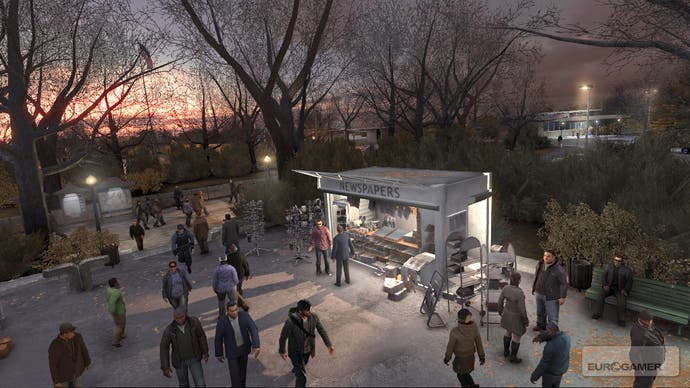
In service to this is level of physics programming that exceeds everything Ubisoft has done before, and a new animation system that helps Sam latch onto objects believably no matter how they've fallen. If a chair is lying on its side, Sam will grab it by the back and leg, whereas a printer's heft means it needs to be supported from underneath. The effect appears consistent, even at this stage, on pre-alpha code. The rest of the engine, built from the ground up, we're told, hopes to benefit from the game's "exclusivity" to PC and Xbox 360. New effects include - ironically - some of the series' most convincing shadows to date. The frame-rate is almost as unkempt as Sam's beard (one "big" distraction is an exploding propane canister, which the game clearly doesn't like yet), but there's still a way to go.
But the question is whether the path they're finding is actually one that players want. We ask Ferland if he's worried about fans reacting badly. "We've been working very closely with the fans from the beginning," he insists. "Their first reaction was, 'What's going on? Where's Sam?' And then they discovered these new possibilities, this new mechanic and they said, 'That looks awesome. I want to play it.'" Right. "To us, it's a nice way to expand the brand because Ubisoft is a nice company and you can push it hard with innovation, especially in Splinter Cell, and sometimes when you want to push innovation you need to adapt your creative direction to fit the kind of gameplay you want to provide." He's definitely in love with the newly contextual stealth action, and tells us so, even if he acknowledges the risk. He also says he believes the controls and gameplay ramifications will feed into an intriguing multiplayer element - something nobody's talked about yet.
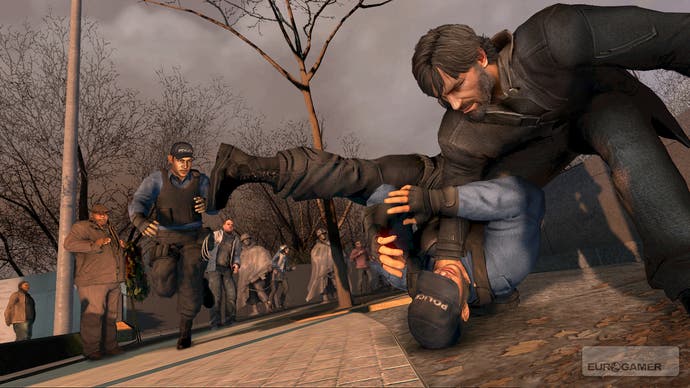
But what if it all goes wrong? Will they stick to it for another instalment, or retreat back to the comfort of the shadows? "It's not a one-way direction," says Ferland. "You can always go back and do different things, having Sam in a new position, or a different character to explore light-and-shadow gameplay." For now then, we'll just have to wait and see whether Ubisoft's bold decision to ditch most of what made Splinter Cell such a success was a wise one or not. A bit like Sam, the present public reaction suggests it'll be guilty until proven innocent.
Tom Clancy's Splinter Cell: Conviction is due out on PC and Xbox 360 this year.

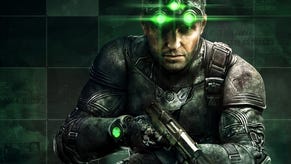
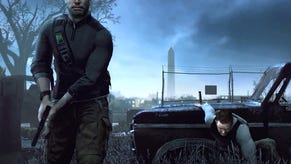
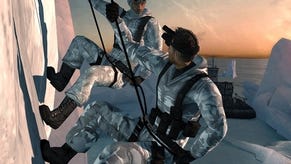




.png?width=291&height=164&fit=crop&quality=80&format=jpg&auto=webp)



